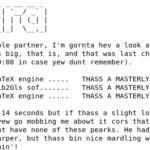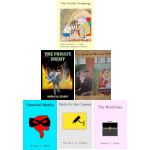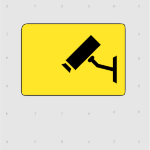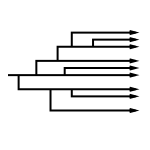Dickimaw Books Blog 
ASD and English GCSE 🔗
[Previously published on GoodReads 2019-02-20.] For those of you who don’t know, I write both fiction and text books. These involve very different writing styles.
Creative writing involves metaphors, similes, double entendres, sub-text, hyperbole, synecdoche, litotes, aporia, aposiopesis, intertextuality and so on. Readers often enjoy discovering new meaning when they re-read their favourite books. The language used within the work can trigger emotional responses.
Technical writing requires plain English, written in a precise, unambiguous style. Customers don’t want to be told that the product they purchased doesn’t actually do what they thought because they didn’t interpret the subtle nuances within the product specifications. If I buy a DIY kit I don’t expect to have to analyse the instructions for hidden meaning. Technical manuals, user guides, official documents should all provide the reader with the information they require accurately and concisely. In our modern Internet age, people reading web pages may well be reading the text through a translation service. For example, this page is written in English, but if a non-English speaker wants to read it they can do so using, for example, Google Translate. These translation services work best with plain, unambiguous, well-written, error-free text. This is something that all businesses and organisations should bear in mind if they have an interest in the international community. I hope this is something I have achieved in my text books and whenever I post answers to technical questions on the Internet. (The temptation to slip into creative writing is always present, but I try to avoid it.)
In the UK (at least in England, I’m assuming it’s the same in Scotland, Wales and Northern Ireland), the secondary education system has two English GCSEs: English Literature and English Language. The first studies set books and analyses the creative writing used within that work. The second includes writing fiction and comprehending pieces of creative writing, where the samples are taken from classic novels or from articles.
Both GCSEs emphasize creative writing skills. This is as it should be for the English Literature course, but the lack of a specific technical writing GCSE is a cause for concern. Firstly from the point of view of employers who are aiming for the Crystal Mark. They need to know the technical writing skills of job applicants, but they can’t tell this from the English Language GCSE. The second problem bothers me even more: the current system discriminates against students on the Autistic Spectrum, who may have a wide vocabulary, good spelling, punctuation and a firm understanding of grammar, but because they can’t understand sub-text, emotional responses and non-literal phrases they fail the English Language GCSE. The education system labels them as illiterate even if they have far better technical writing skills than their neurotypical peers who are able to pass the GCSE because they can understand sub-text and can write about emotions.
I’m not faulting the English teachers here. There are many good teachers who are aware of this discrimination, but they are constrained by the curriculum. However I have also heard arguments along the lines of ‘They need to learn how to understand sub-text and non-literal expressions in case they encounter it in their profession.’ This has no more sense than saying that a colour-blind person needs to learn how to distinguish between colours in case they enter a profession that requires that ability. It shows a basic lack of understanding of disabilities.
I believe that the curriculum should consist of three separate English GCSEs:
- English Literature. (As it currently is.)
- Creative Writing. (Much of what the current English Language GCSE entails.)
- Technical English.
This would not only help to end the curriculum’s current discrimination against Autistic pupils but will also benefit business and technical sectors who need employees with technical writing skills.
Next Post
Previous Post
 An application that supports localisation is one that is designed to allow textual information to be displayed in different languages, and (where necessary) to format certain elements, such as dates or currency, according to a particular region.
An application that supports localisation is one that is designed to allow textual information to be displayed in different languages, and (where necessary) to format certain elements, such as dates or currency, according to a particular region.Recent Posts
 There are a growing number of digital historians who are interested in documenting old computing systems from the twentieth century, but much of the information has been lost and coincident names can make it hard to search. This article is about the RISC OS ARMTeX distribution, which provided TeX and LaTeX for the ARM-powered Acorn computers in the 1990s.
There are a growing number of digital historians who are interested in documenting old computing systems from the twentieth century, but much of the information has been lost and coincident names can make it hard to search. This article is about the RISC OS ARMTeX distribution, which provided TeX and LaTeX for the ARM-powered Acorn computers in the 1990s. The DRM-free ebook retailer SmashWords has its annual Summer/Winter sale from 1st – 31st July 2025. My crime novel “The Private Enemy” and children’s illustrated story “The Foolish Hedgehog” both have a 50% discount, and my crime fiction short stories “I’ve Heard the Mermaid Sing”, “Unsocial Media”, “Smile for the Camera”, and “The Briefcase” have a 100% discount (i.e. free!) for the duration of the sale. Did you know that you can gift ebooks on SmashWords?
The DRM-free ebook retailer SmashWords has its annual Summer/Winter sale from 1st – 31st July 2025. My crime novel “The Private Enemy” and children’s illustrated story “The Foolish Hedgehog” both have a 50% discount, and my crime fiction short stories “I’ve Heard the Mermaid Sing”, “Unsocial Media”, “Smile for the Camera”, and “The Briefcase” have a 100% discount (i.e. free!) for the duration of the sale. Did you know that you can gift ebooks on SmashWords? If you have read my short story Smile for the Camera, did you notice that the ending could have two possible interpretations? (No spoilers please!) As a writer, it’s always difficult to tell if something is too obvious or too obscure. If you need a hint, consider the naming scheme and remember that not everyone is what they say or imply that they are.
If you have read my short story Smile for the Camera, did you notice that the ending could have two possible interpretations? (No spoilers please!) As a writer, it’s always difficult to tell if something is too obvious or too obscure. If you need a hint, consider the naming scheme and remember that not everyone is what they say or imply that they are. The Ex-Cathedra writing group were delighted to present a cheque for £1,400 to St Martins Housing Trust during their collection at Tesco Harford Bridge on 6th December 2024. The money was raised from sales of the book Tales for Our Times, an anthology of short stories written by the group. The cheque was received by Ian Hanwell on behalf of St Martins. Many thanks to the support of everyone who purchased a copy and to the staff at Tesco Harford Bridge for allowing us to make the presentation there.
The Ex-Cathedra writing group were delighted to present a cheque for £1,400 to St Martins Housing Trust during their collection at Tesco Harford Bridge on 6th December 2024. The money was raised from sales of the book Tales for Our Times, an anthology of short stories written by the group. The cheque was received by Ian Hanwell on behalf of St Martins. Many thanks to the support of everyone who purchased a copy and to the staff at Tesco Harford Bridge for allowing us to make the presentation there. Search Blog
📂 Categories
- Autism
- Books
- Children’s Illustrated Fiction
- Illustrated fiction for young children: The Foolish Hedgehog and Quack, Quack, Quack. Give My Hat Back!
- Creative Writing
- The art of writing fiction, inspiration and themes.
- Crime Fiction
- The crime fiction category covers the crime novels The Private Enemy and The Fourth Protectorate and also the crime short stories I’ve Heard the Mermaid Sing and I’ve Heard the Mermaid Sing.
- Fiction
- Fiction books and other stories.
- Language
- Natural languages including regional dialects.
- (La)TeX
- The TeX typesetting system in general or the LaTeX format in particular.
- Music
- Norfolk
- This category is about the county of Norfolk in East Anglia (the eastern bulgy bit of England). It’s where The Private Enemy is set and is also where the author lives.
- RISC OS
- An operating system created by Acorn Computers in the late 1980s and 1990s.
- Security
- Site
- Information about the Dickimaw Books site.
- Software
- Open source software written by Nicola Talbot, which usually has some connection to (La)TeX.
- Speculative Fiction
- The speculative fiction category includes the novel The Private Enemy (set in the future), the alternative history novel The Fourth Protectorate, and the fantasy novel Muirgealia.
🔖 Tags
- Account
- Alternative History
- Sub-genre of speculative fiction, alternative history is “what if?” fiction.
- book samples
- Bots
- Conservation of Detail
- A part of the creative writing process, conservation of detail essentially means that only significant information should be added to a work of fiction.
- Cookies
- Information about the site cookies.
- Dialect
- Regional dialects, in particular the Norfolk dialect.
- Docker
- Education
- The education system.
- Ex-Cathedra
- A Norfolk-based writing group.
- Fantasy
- Sub-genre of speculative fiction involving magical elements.
- File formats
- FlowframTk
- A vector graphics application written in Java that can export to pgf picture drawing code but can also be used to construct frames for use with the flowfram package. Home page: dickimaw-books.com/software/flowframtk. (FlowframTk was originally called JpgfDraw.)
- Hippochette
- A pochette (pocket violin) with a hippo headpiece.
- History
- I’ve Heard the Mermaid Sing
- A crime fiction short story (available as an ebook) set in the late 1920s on the RMS Aquitania. See the story’s main page for further details.
- Inspirations
- The little things that inspired the author’s stories.
- Linux
- Migration
- Posts about the website migration.
- Muirgealia
- A fantasy novel. See the book’s main page for further details.
- News
- Notifications
- Online Store
- Posts about the Dickimaw Books store.
- Quack, Quack, Quack. Give My Hat Back!
- Information about the illustrated children’s book. See the book’s main page for further details.
- Re-published
- Articles that were previously published elsewhere and reproduced on this blog in order to collect them all together in one place.
- Sale
- Posts about sales that are running or are pending at the time of the post.
- Site settings
- Information about the site settings.
- Smile for the Camera
- A cybercrime short story about CCTV operator monitoring a store’s self-service tills who sees too much information.
- Story creation
- The process of creating stories.
- TeX Live
- The Briefcase
- A crime fiction short story (available as an ebook). See the story’s main page for further details.
- The Foolish Hedgehog
- Information about the illustrated children’s book. See the book’s main page for further details.
- The Fourth Protectorate
- Alternative history novel set in 1980s/90s London. See the book’s main page for further details.
- The Private Enemy
- A crime/speculative fiction novel set in a future Norfolk run by gangsters. See the book’s main page for further details.
- Unsocial Media
- A cybercrime fiction short story (available as an ebook). See the story’s main page for further details.
- World Book Day
- World Book Day (UK and Ireland) is an annual charity event held in the United Kingdom and the Republic of Ireland on the first Thursday in March. It’s a local version of the global UNESCO World Book Day.
- World Homeless Day
- World Homeless Day is marked every year on 10 October to draw attention to the needs of people experiencing homelessness.

